- 1What is a pot magnet?
- 2What is pot magnet used for?
- 3What are the parts of a pot magnet?
- 4How does a pot magnet work?
- 5What are the different types of pot magnet?
- 6Which type of pot magnet should you choose?
- 7What is a countersunk pot magnet?
- 8How to use a countersunk pot magnet
- 9What is an internal threaded pot magnet?
- 10What is a through hole pot magnet?
- 11What is a stud pot magnet?
..to your best source for incredibly strong neodymium rare earth magnets. If you are new to our site, we're glad you found us. We hope we can fill all of your neodymium rare earth magnet needs.
What is a countersunk pot magnet?
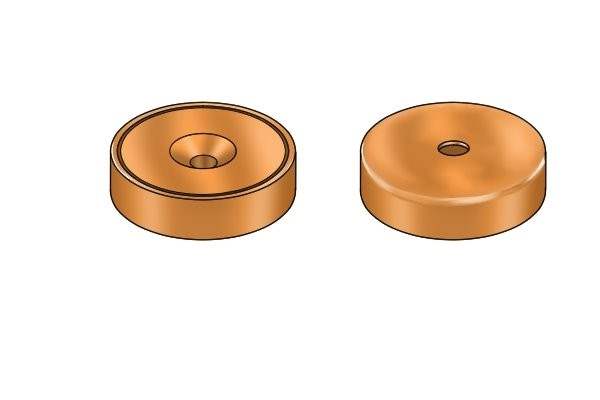 | A countersunk pot magnet is a pot magnet with a countersunk hole on its magnetic face. |
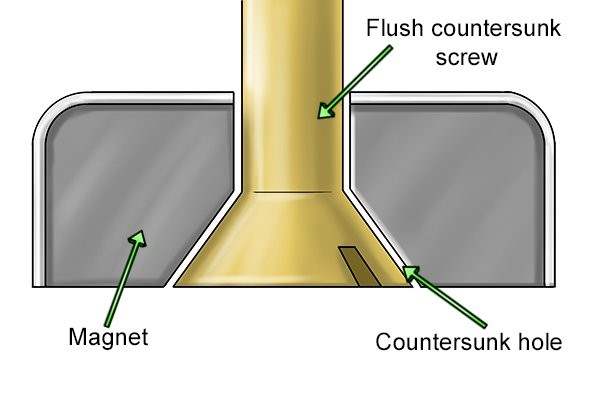 | The countersunk hole tapers inwards at an angle of 82 degrees, allowing the magnet to be attached to a surface with a countersunk screw, providing the screw has an 82 degree angled head.
Once attached, the screw should sit flush with the surface of the magnet. |
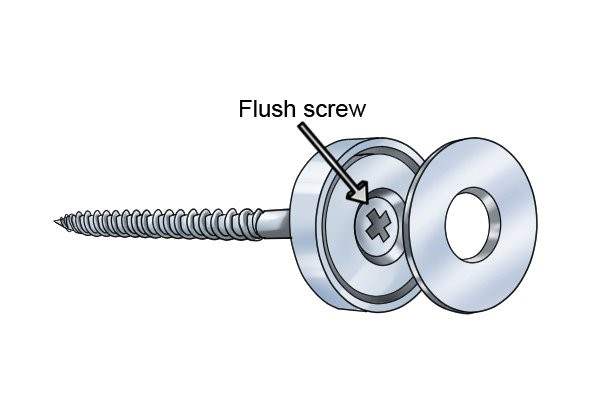 | Here, flush means that when the magnet has been sunk into an object, (e.g. a fridge door), the top of the screw and the magnet will be level with the surface, rather than protruding above like other types of screws would (e.g. on an internal threaded pot magnet).
|
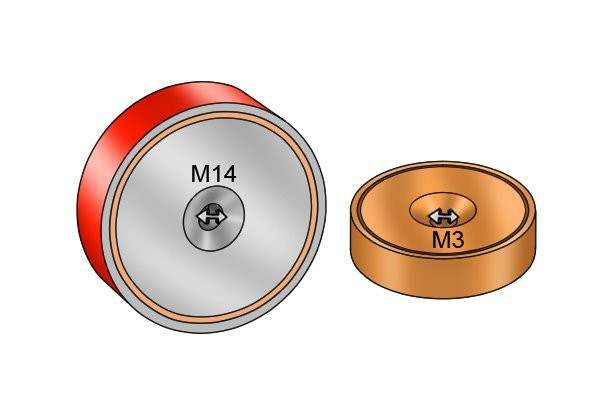 | The countersunk pot magnet has a countersunk hole which can be M3 to M14.
M3 to M14 stands for a metric countersunk hole which is 3mm (0.12") to 14mm (0.55") in diameter. |
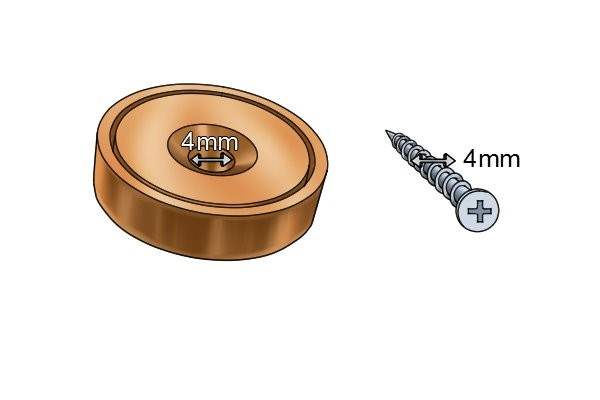 | The screws used with a countersunk pot magnet need to be the same diameter as the countersunk hole. For example, you will need a screw that is 4mm (0.16") in diameter to fit inside a 4mm (0.16") diameter countersunk hole in a countersunk pot magnet. |
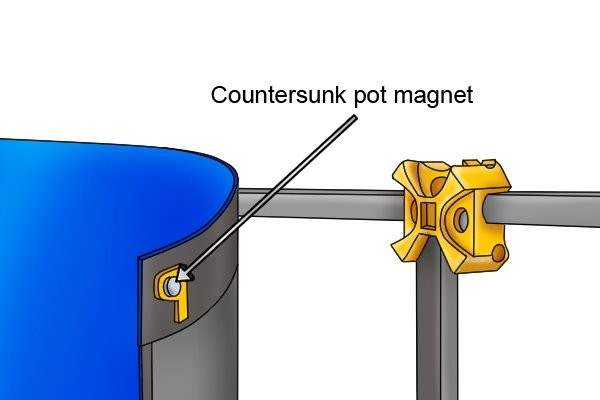 | Countersunk pot magnets can be used to hold any ferromagnetic material onto a non-ferromagnetic surface; for example, to attach an exhibition display sign to a stand for marketing purposes. |